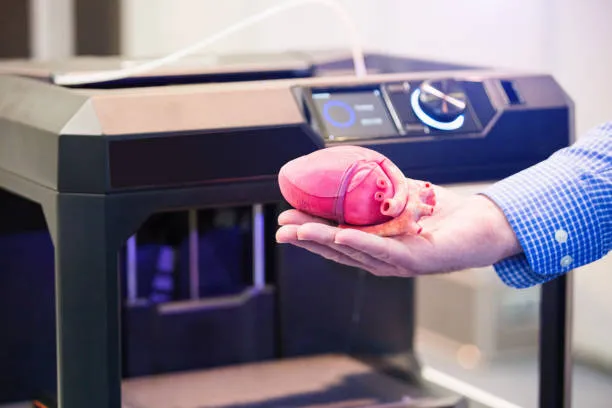Have you ever imagined that a small invention could restore hope to a patient's life?
Biomedical engineering in Malaysia offers you this opportunity.
By combining engineering and medical knowledge, you can contribute to developing innovative technologies that improve quality of life.
In this article, we will explore top biomedical engineering universities and programs in Malaysia and how you can build a successful career in this field.
Why Study Biomedical Engineering in Malaysia?

Malaysia provides an encouraging environment for innovation and growth in biomedical engineering.
Here are some reasons why studying biomedical engineering in Malaysia is attractive:
Advanced Research
Malaysia is rapidly advancing in scientific and technological research, providing a stimulating environment for innovation and development in biomedical engineering.
Diverse Specializations
Malaysian universities offer a variety of specializations within biomedical engineering, allowing students to choose fields that match their interests and career goals.
Modern Laboratories
Universities in Malaysia have labs equipped with the latest technologies and tools, supporting students in conducting advanced and applied
research.
What Is Biomedical Engineering?
Biomedical engineering is the application of engineering science and technology to solve problems in medicine and biology.
It is also essential in the healthcare industry for the design and development of medical equipment connected to health systems and IT solutions.
Biomedical Engineering Degrees in Malaysia
There are several educational degrees in biomedical engineering in Malaysia.
These degrees help students advance academically and professionally, providing the knowledge and skills needed to excel in this vital field.
|
Type of Degree |
Annual Tuition Fees (USD) |
Duration |
|
Bachelor of Biomedical Engineering in Malaysia |
3,758 - 6,144 |
4 years |
|
Masters of Biomedical Engineering in Malaysia |
3,875 - 4,144 |
1.5 - 2 years |
|
PHD in Biomedical Engineering in Malaysia |
1,575 - 4,875 |
2 - 3 years |
Top Biomedical Engineering Universities in Malaysia

Several universities stand out in offering excellent programs in biomedical engineering in Malaysia.
The program emphasizes practical training and technical knowledge in various areas of biomedical engineering.
Here breakdown of them:
|
University* |
Ranking |
Annual Tuition Fees* (USD) |
Discount Availability * (USD) |
|
UM |
#60 |
6,144 |
- |
|
#181 |
3,758 |
- |
|
|
#621-640 Asian |
4,375 |
$875 per year |
|
|
UTAR |
#801-850 |
5,000 yearly |
- |
* Click the university name in the table for course details.
* Tuition fees stated are annual and for bachelor degrees. Fees are calculated as per 4.0 exchange rate.
* Discount availability depends on nationality and academic performance. For more details, you may contact our team. You will find details at the end of the article.
Program Structure for Biomedical Engineering in Malaysia

Biomedical engineering programs in Malaysia cover a wide range of subjects.
Below is an overview of the main biomedical engineering courses in Malaysia by year:
|
Years |
Main Courses |
|
Year 1 |
|
|
Year 2 |
|
|
Year 3 |
|
|
Year 4 |
|
Career Prospects for Biomedical Engineering in Malaysia
Biomedical engineering is not just a field of study; it’s a way to improve healthcare quality.
By choosing this field, you embark on a journey to relieve pain, enhance the quality of life, and protect people from diseases.
Through this field, you play a key role in designing and improving medical devices and technologies that enhance patient care and treatment.
After graduating with a degree in biomedical engineering in Malaysia, you will find many job opportunities awaiting you:
- Researcher
- Biomedical Engineer/Medical Engineer
- Medical Device Design Engineer
- Healthcare Consultant
- Biomaterials Engineer
- Rehabilitation Engineer
- Field Service Engineer
- Medical Equipment Customer Support Engineer
Branches of Biomedical Engineering
Biomedical engineering in Malaysia includes several branches, such as:
- Medical Device Engineering: Design and development of medical devices like artificial hearts, ventilators, and medical imaging devices.
- Tissue and Organ Engineering: Developing artificial tissues and organs to replace damaged tissues, such as prosthetics.
- Medical Imaging Engineering:Developing medical imaging technologies like MRI, X-rays, and CT scans.
- Biological Signal Engineering: Analyzing biological signals like ECG and designing wearable devices.
- Genetic Engineering: Using genetic techniques to treat genetic diseases and tissue engineering.
Difference Between Biomedical Engineering and Medical Engineering in Malaysia
1. Biomedical Engineering (BME)
Scope: Broader field combining engineering principles with biological sciences.
Focus Areas: Medical devices (design & maintenance) Imaging systems (MRI, CT, ultrasound) Biomaterials Prosthetics and implants Rehabilitation technology
2. Medical Engineering
Scope: Usually considered a subset of biomedical engineering, focusing specifically on engineering applied to clinical and hospital settings.
Focus Areas: Clinical equipment maintenance & calibration Hospital system integration Safety standards & compliance in medical devices
Note: Universities mostly use Biomedical Engineering for the full Bachelor’s program.
Medical Engineering is either an alternative name used by some institutions or refers to a more practical, hospital-oriented branch.
Comparing Studying Biomedical Engineering in Malaysia Vs. UK, Australia & US
When considering studying biomedical engineering, it’s important to compare destinations.
Here is a quick comparison of studying biomedical engineering in Malaysia,UK, Australia and US.
|
Destinations |
Duration |
Highest University Ranking |
Tuition Fees Per Year (USD) |
Average Living Cost Per Year (USD) |
|
Malaysia |
4 years |
60th |
3,758 - 6,144 |
5,550 |
|
UK |
3 years |
2nd |
18,177 - 41,452 |
9,538 |
|
Australia |
4 years |
13th |
26,231 - 26,828 |
14,557 |
|
US |
4 years |
1st |
12,294 - 57,100 |
13,250
|
YourUni Experts’ Choice

Based on our students’ feedback and our evaluation, we found out that the following universities are the top choices to study biomedical engineering in Malaysia:
Universiti Teknologi Malaysia (UTM)
UTM is an excellent choice for students interested in biomedical engineering due to its strong focus on innovative research labs.
UTM provides a supportive environment where students can engage in cutting-edge research projects.
This emphasis on innovation not only enhances students' practical skills but also prepares them to tackle real-world challenges in healthcare technology.
University of Malaya (UM)
UM stands out for its renowned faculty and diverse specializations.
The university boasts a team of accomplished experts in various fields of biomedical engineering.
This provides students with the opportunity to learn from leaders in the industry, offering a rich educational experience.
UM's diverse specializations allow students to tailor their studies to their specific interests and career goals, making it an attractive option for aspiring biomedical engineers.
University of Cyberjaya (UoC)
UoC offers a unique advantage with its industry-aligned curriculum and partnerships.
The curriculum at UoC is designed to meet the needs of the healthcare industry, ensuring that students gain relevant knowledge and skills.
Additionally, strong partnerships with local and international healthcare companies provide students with valuable opportunities for internships and hands-on training.
This connection to the industry significantly enhances students' employability upon graduation.
.webp)
.webp)

